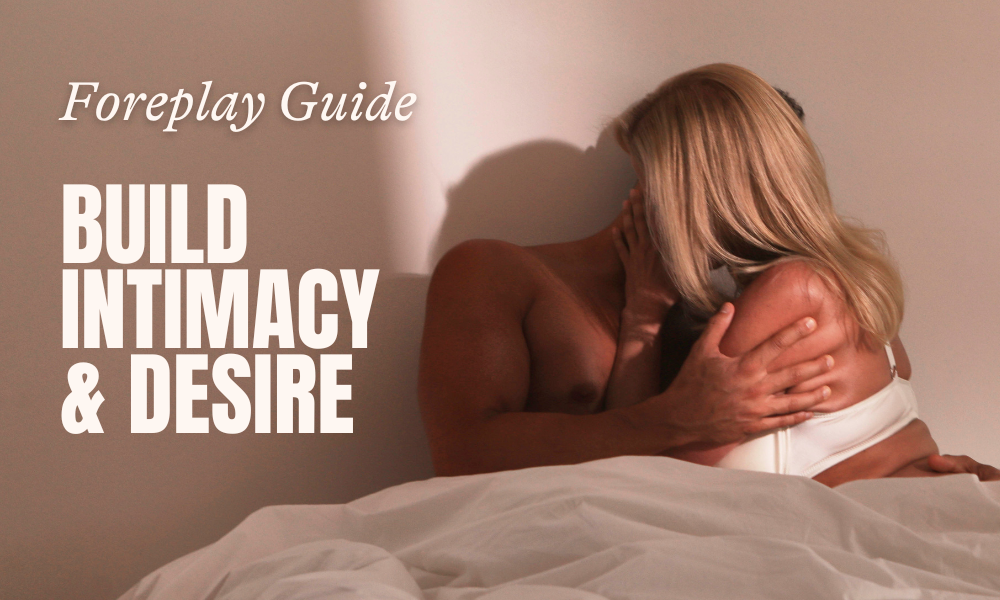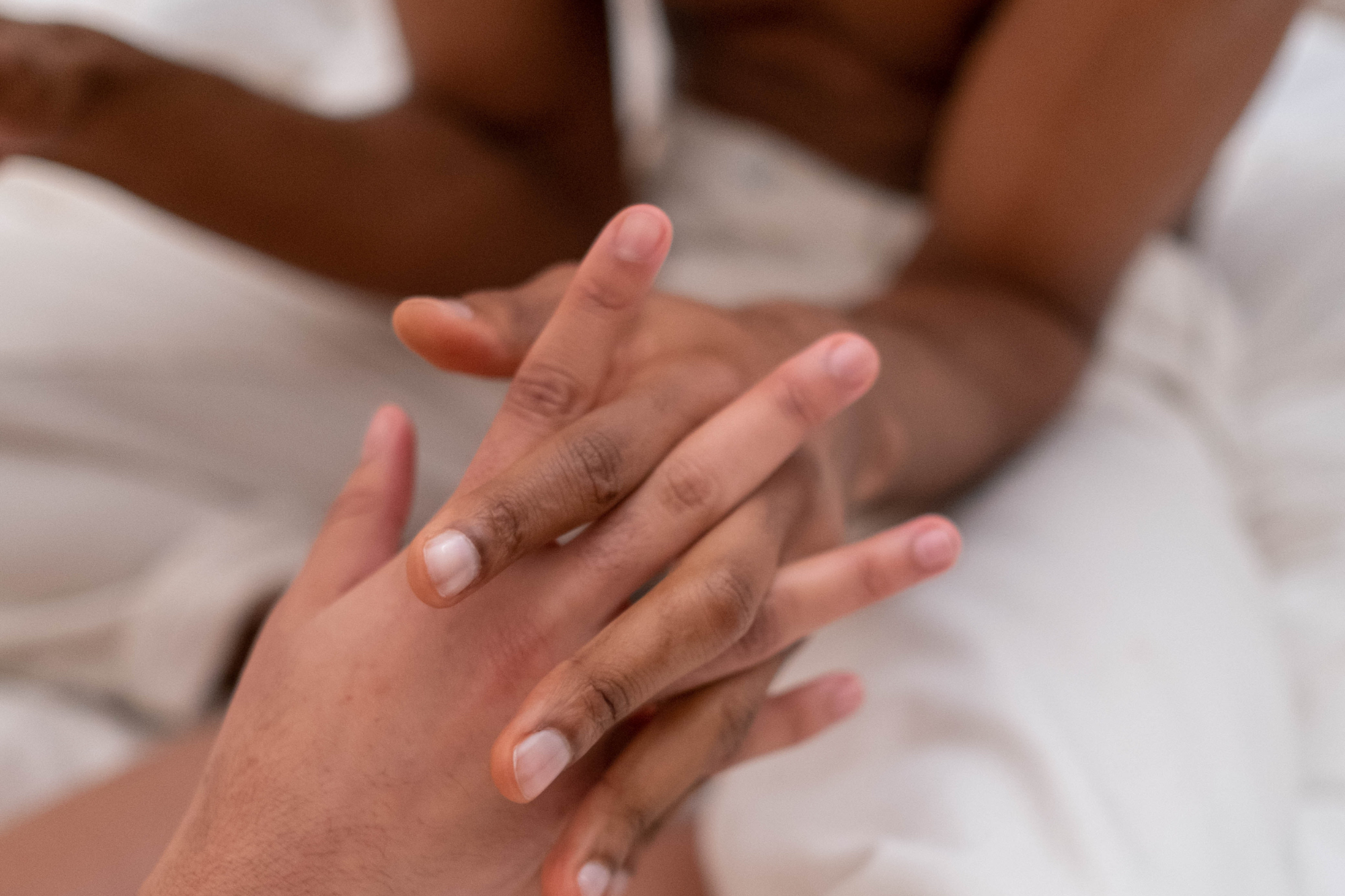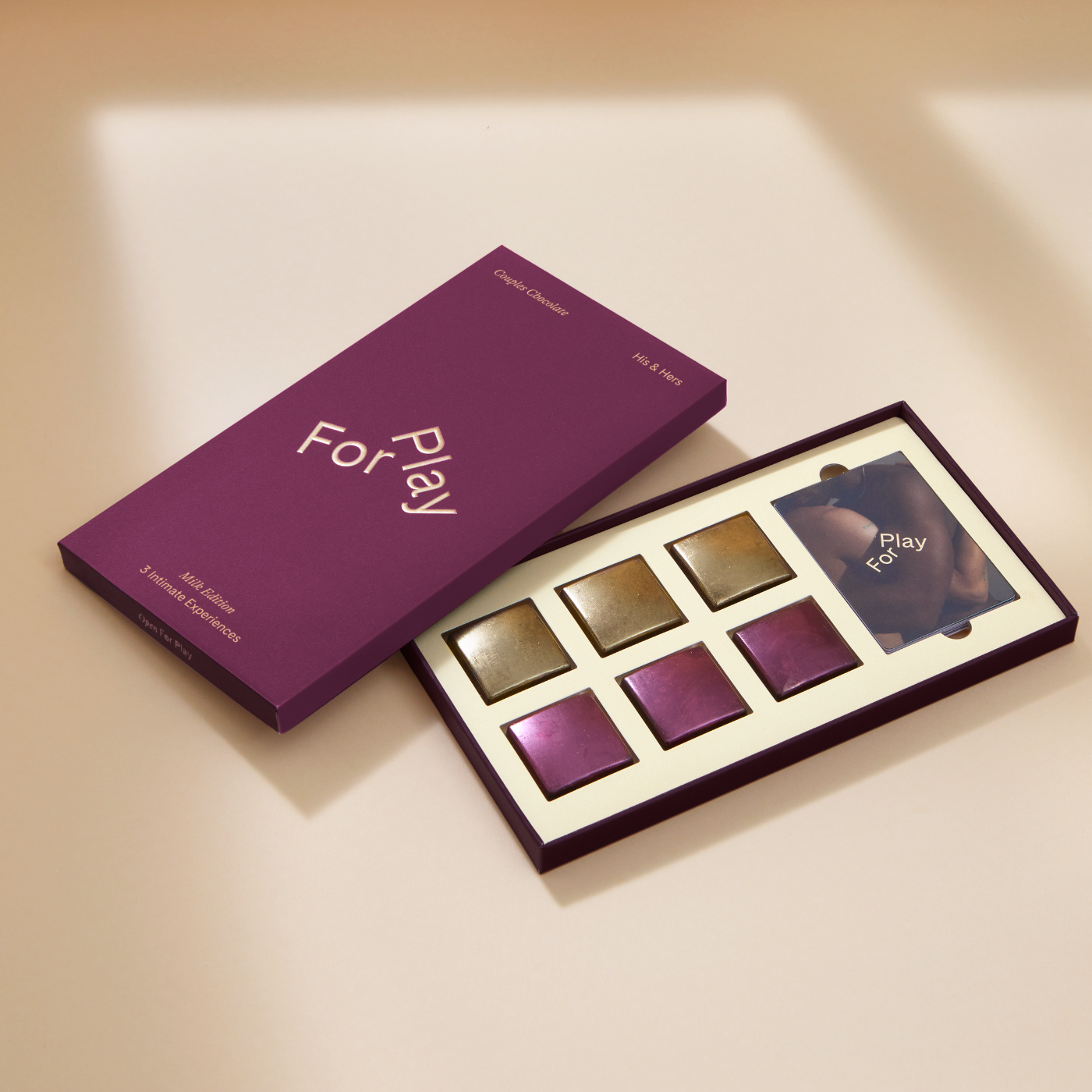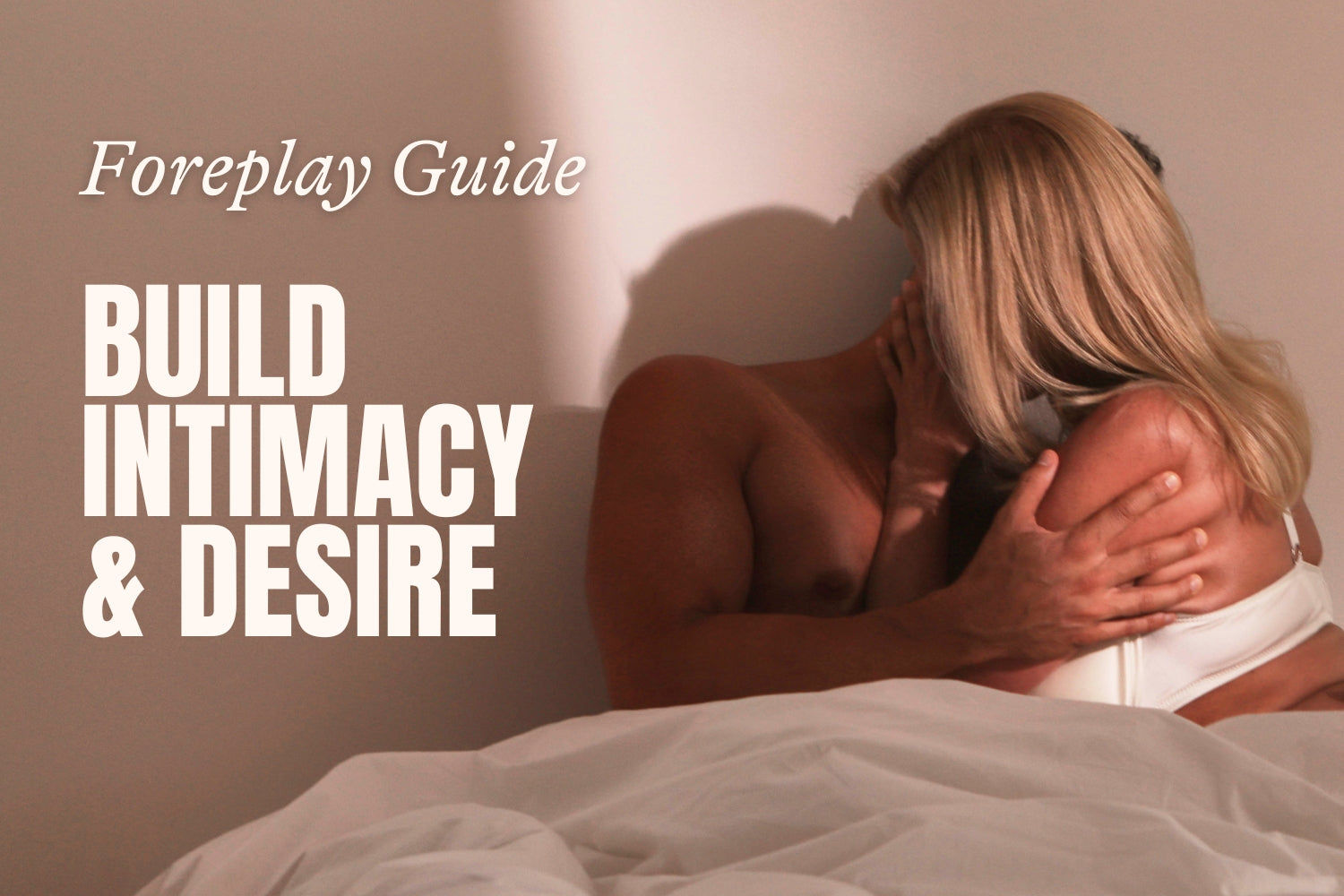At some point in their lives, many women experience a loss of libido, when the occurrence and intensity of their sexual desire is reduced, affecting their overall sexual function.
To understand how this might feel, think about the experience of cravings for your favourite dessert: this is a strong desire that can sometimes disappear seemingly without warning.
Let's Talk Low Libido

Low libido, or hypoactive sexual desire disorder (HSDD), affects a fifth of women during their lives. It’s intricately connected with many aspects of well-being, with threads of physical health, emotional state, and life circumstances all joining to create this tangled web. Not only do those affected no longer feel the same degree of attraction towards sex as before, but they also struggle to comprehend why that might be so.
Fortunately, for women experiencing these symptoms, help is at hand, including starting hormonal contraception treatments, speaking with the GP and making changes towards better lifestyle habits, along with consulting relationship support or seeing a psychologist. Importantly though, each woman is unique, so the answer for low sexual desire, wherever it may stem from, should also be unique to them.
Symptoms of Decreased Sex Drive
It can be hard to identify whether or not you have low libido. Some typical signs to look out for are a reduced interest in sexual activities and no inclination towards sex fantasies or thoughts, regardless of what they are. Some women also experience physical symptoms, such as vaginal dryness, which causes pain during intimacy, making the act seem like an obligation rather than something enjoyable. Unfortunately, issues with a lack of arousal tend to go unnoticed, and yet understanding these indicators is an initial step in taking care of your libido. We are all individuals, so pay attention to times when you experience discomfort during intimacy or have lower attraction to intimate behaviour, as these are all warning signals about how your libido level is doing.
Responsive Desire vs. Low Libido

Understanding the spectrum of desire, particularly in women, is crucial for a healthy sex life. Along this spectrum, a key distinction exists between spontaneous and responsive desire. Spontaneous desire, the one you’ll see most often highlighted in films and television, is desire that appears out of nowhere: one moment, the protagonists are cooking, the next, they are gripping each other with desire. Responsive desire, on the other hand, emerges in response to erotic stimuli, like physical touch or a passionate moment.
Dr. Rosemary Basson’s studies reveal that many women, and some men, most often experience responsive rather than spontaneous desire. Yet, because spontaneous desire is portrayed as the norm, having predominantly responsive desire can be misinterpreted as a sign of low libido. For example, a woman who most often experiences responsive desire may not frequently have spontaneous urges for intimacy, leading her or her partner to mistakenly conclude she has a low sex drive.
Actually though, responsive desire itself isn’t indicative of any libido deficiency; it's simply a different way of experiencing sexual desire. Those with responsive desire often find satisfaction in the entire intimate experience, not just the fulfilment of a spontaneous urge.
Recognising this is essential for couples’ sexual harmony. If one partner primarily experiences responsive desire, understanding this can result in more intentional efforts to create a sensual atmosphere and engage in satisfying foreplay, ultimately helping them to build a more fulfilling sex life.
Related: 7 Sex Myths Debunked
Physical Factors Affecting Libido
Let’s look at the physical components that have an influence on libido. Similar to how we carefully balance flavours in our favourite dish, our bodies rely upon a certain balance of hormones for optimal functioning, and any disruption in them can impact sexual drive. Other elements such as certain medicines, health issues, and even ageing all play their part too.
It’s vital we recognize the signs of low libido so we can take steps towards supporting the balance in our hormone levels or address other concerns causing this decline in desire.
Medications
Various medications and medical ailments can have an effect on sex drive, meaning that no matter how hard we try to ignite intimacy, it’s like driving with the brakes on. Amazingly, even some regular drugs can decrease libido. Drug misuse is also a serious problem connected to diminished arousal levels.
If you believe your medication might be affecting your desire for intimacy, it’s best to consult your GP about adjusting the dosage or switching meds altogether. After all, we all deserve a healthy sex life.
Hormonal Imbalances
We know that sex drive can be affected by imbalances in hormones, like when you’ve added a pinch too much salt and the dish just doesn’t taste quite right. These imbalances in our hormones can arise from changes such as the menopause or thyroid problems that lower the levels of oestrogen in women, leading to a decline in sexual drive. Testosterone levels also tend to decrease after having a hysterectomy, again affecting our libido. As another example, hyperprolactinaemia, when prolactin hormone levels are higher than normal, may result in reduced sexual desire. Fortunately, there are various approaches for treating this imbalance, such as taking medications, using replacement hormones, or making certain lifestyle modifications, although it’s important to check with your healthcare provider first on what works best before trying any remedies.
Ageing and Sexual Health
We all go through significant changes as we age, and some of these may have a detrimental impact on our libido. For instance, levels of hormones such as oestrogen and testosterone may decline, leading to lower libido in women.
Although the changes of aging may contribute towards decreasing a person’s sexuality over time, we don’t simply have to accept living with a decreased libido as we get older. Instead, we should remain aware of these changes so that we can take steps toward managing their impact on our sex lives. For example, although menopause brings about hormonal shifts that often leads to decreased desire, along with symptoms like vaginal dryness, understanding this can prepare us to find ways around those obstacles and pursue effective remedies.
Related: Natural Tips To Boost Your Libido
Psychological and Emotional Influences

It is not just physical factors that impact sexual drive—psychological and emotional influences like stress, anxiety, and depression can be major barriers too. Our physical, emotional, and spiritual health all need to work together for desire to truly exist. So when we are struggling with our emotional or spiritual well-being, it’s as if there is a mental fog stopping the flame of passion from burning brightly.
Stress, Anxiety, and Exhaustion
We all deal with stress at many points in our lives, and when it comes to low libido, the effects of chronic stress on sex hormones should be taken into account. Prolonged exposure to stress can lead to a “cortisol overload”, where we end up with too much of the stress hormone cortisol in our bodies. This cortisol suppresses female hormone production and consequently reduces sexual drive. Also, relationship issues can add fuel to this fire. When living in a difficult or unpleasant environment, there is often not much room for desire, intimacy, or pleasure.
We’ve all been there—you’re exhausted from dealing with too much pressure in your life, and your desire for intimacy is low on the priority list. In this situation, seeking help could prove useful, whether this is help with changing certain lifestyle habits or consulting a professional for advice. These storms will eventually clear away, and beautiful blue skies will follow once more.
Depression and Mental Health
In times of mental health difficulties, it can feel as if our view of the world has become distant and murky, like we are looking out through a foggy window. In these times, it’s not only our mental well-being that is affected—changes in mood, low energy, and a diminished sense of self-worth can all have an impact on sexual desire and well-being. Evidence also suggests that certain antidepressant medications may suppress sexual drive. If these experiences ring true with you, it is vital to discuss your concerns with your healthcare provider so you can get tailored care for your physical health, mental health, and sexual wellbeing.
Relationship Dynamics and Sexual Intimacy

Intimacy is an intricate process made up of both physical and emotional facets. For the flame of sexual intimacy to be fully ignited requires a profound level of connection in the relationship, which can be developed through both effective communication and emotional closeness. Put simply, these relationship dynamics have a significant influence on our desire for intimacy.
Communication and Emotional Closeness
In order to maintain a healthy relationship, communication is key. Without a proper exchange of feelings and desires between partners, issues may arise that can have negative impacts on libido as well as the connection shared by the two people in love. On the contrary, when dialogue is open and honest and conversations are backed by understanding and compromise, trust can form, enhancing the emotional closeness between partners. Unsurprisingly, this emotional form of closeness has positive implications for libido too!
To improve communication,start off by practising expressing your needs freely and without accusation, while also listening actively to what your partner says without judgement—it’s like learning a new dance together, where both parties need to learn the rhythm of communication to synchronise their minds perfectly!
Related: How to Talk To Your Partner About Sex
Sexual Performance Concerns
When it comes to sexual satisfaction, concerns regarding performance can act as a hindrance and cause low libido or even issues such as erectile dysfunction. Trying to be intimate when experiencing worry about sexual performance is like trying to sing with serious stage fright. You may be the new Adele, but you won’t be enjoying yourself much due to the underlying psychological worries buzzing around your mind.
Obtaining help from a professional is beneficial in cases similar to this: it can help you identify the why behind your concerns, target any related problems, and get you back on track quickly, so you can once again enjoy yourself without fear.
Seeking Professional Help for Low Libido

When it comes to low libido, just like with any physical worries you might have, seeking help from an expert is very important. Sexual health is a huge part of our lives and overall well-being, and you can take comfort from knowing that you will never be the first person with this experience!
Talking to Your Healthcare Provider
Talking to a healthcare provider about having low libido can be illuminating, since it may allow for potential causes and treatments to be identified. It is best to seek advice from an expert in sexual health. During the initial meeting with your doctor, they will assess your overall well-being through a discussion with you and physical examinations, as well as testing blood samples if necessary. Try not to be shy—the more information you can give your doctor about your concerns, the more likely you both are to identify the cause. And once they are able to identify the why of your low libido, you can work together to solve it, giving you back the power over your sexual desire.
Psychosexual Counselling
Struggling to put into words how you feel about sexual intimacy? Psychosexual counselling, an effective form of relationship therapy, offers couples a safe place for discussion around any sexual or emotional problems that could result in decreased sexual drive. You wouldn’t hesitate to get your car serviced, and psychosexual counselling is the same—it not only helps resolve current difficulties but also gives advice on how future troubles may be prevented.
Tips for Low Sex Drive

So, you’re clued up on libido and know how to access professional help, but what can you do in your daily life to prevent or combat low libido? Think of these suggestions like a toolbox with items always ready for use when needed.
Lifestyle Changes and Self-Care
Living a healthier lifestyle isn’t just about a strong heart and lungs—it also helps improve your sexual life and sexual health. If you’re wanting to take your sexual well-being to the next level with some simple lifestyle changes, look no further:
- Mindfulness and Mental Wellness Sexual desire isn't just a physical sensation; it's intimately connected to your mental and emotional state. Practising mindfulness can help you tune into your body and embrace your sexual feelings. Techniques like meditation, deep breathing, and yoga can help reduce stress, increase body awareness, and improve your mood, all of which can enhance sexual desire.
- Physical Activity Regular exercise is not just good for your physical health; it can also ignite your sexual energy. Physical activity improves blood circulation, boosts energy levels, and helps balance hormones. Additionally, exercise can increase body confidence and feelings of attractiveness, adding an extra spark to your libido.
- Healthy Diet A nutritious, balanced diet plays a crucial role in maintaining hormonal balance and overall well being, which in turn, can influence your sexual desire. Including libido-boosting foods like dark chocolate, oysters, strawberries, avocados, and almonds can be beneficial both for your tastebuds and for the bedroom! These foods are rich in essential vitamins and minerals that can aid in enhancing sexual function and desire.
- Exploring Aphrodisiacs Aphrodisiacs are substances known to boost sexual desire. For centuries, different cultures have claimed certain foods, herbs, and spices have aphrodisiac properties. One of the most famous is oysters, high in zinc, which can promote good sexual health. Others include fenugreek, which has been found to boost libido and enhance sexual function. For Play Chocolate contains natural aphrodisiac ingredients such as fenugreek, ginseng and ashwagandha to get women in the mood.
Related: 8 Aphrodisiac Foods For Your Libido
- Regular Sexual Activity Like anything else, practice makes perfect when it comes to sexual desire. Engaging in regular sexual activity can help keep your libido high. This could be solo with masturbation, helping you explore what turns you on, or with a partner, fostering intimacy and connection.
Related: Scheduling Sex Is The New Sexy
Psychological and Relationship Support
Sometimes, these simple lifestyle changes won’t be quite enough, and low libido might require some form of psychological and relationship guidance for successful navigation. Two well-known techniques that can prove beneficial in these instances are Cognitive Behavioural Therapy (CBT) and Mindfulness Based Therapy (MBT). Sex therapy sessions combined with marriage counselling could act as a GPS on the journey to reach your desired intimate life more quickly and efficiently.
A word from For Play
Many women have experienced low sexual desire, and this can be caused by a variety of factors (physical health issues, psychological well-being, and even some medications!). Fortunately, taking the right measures can help to effectively tackle low libido and get back on track with your sex life. On this journey towards a healthy libido, remember that help is at hand—communicate openly with your partner, and don’t be afraid seek professional assistance when you need it. Ultimately, your sex life is a huge part of your overall well-being, all journeys start off small so don’t wait any longer before taking those first few steps towards improved sexuality.
Frequently Asked Questions
What can cause low sex drive in women?
Low sexual desire in women can be due to various factors such as hormonal imbalances, stress levels, depression, and the use of certain medications, or conflictual relationships.
What can improve a woman’s libido?
A healthy diet incorporating aprhodisiac-like foods, such as watermelon and avocado, can help to boost libido and deliver Viagra-like effects. Adding to this, physical activity in the form of regular exercise as well as strength training will enable an increase in energy levels, including sexual energy. Finally, reducing stress and improving relationship communication can both have benefits for libido.
What is considered low libido in women?
Low libido in women, which is a lack of interest or pleasure in sexual activity, can be attributed to a range of physical, psychological, and lifestyle factors. Physically, hormonal imbalances, medical conditions, and certain drugs are among the possible causes for low libido. Psychologically, stressors such as anxiety and depression coupled with any difficulties experienced within relationships could also lead to lower levels of desire. Fatigue arising from the activities of everyday life might also contribute to lowered libido.
What are signs of low libido?
People experiencing low libido may have decreased sexual interest, including lessened arousal and fantasies. Women with low libido may also experience certain physical symptoms, such as vagical dryness during intimacy.
How can hormonal imbalances affect sex drive?
Hormonal imbalances can have a major effect on sexual desire. For example, thyroid issues or changes related to the menopause often result in diminished libido. Fortunately, medical treatment is available that helps balance hormone levels and restore sexual drive.










